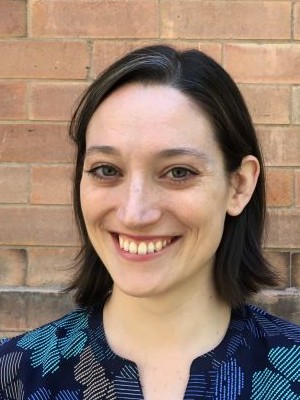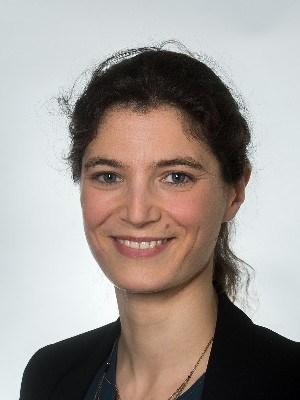How Can U.S. Water Efficiency Standards Inform Worldwide CO2 Reduction?
9 June 2020
<!–
4:00 p.m. Brussels (CEST) | 1:00 p.m. London | 10:00 a.m. Washington D.C. | 08:00 Denver
Check your local time.
Register now: https://register.gotowebinar.com/register/21584918522157579
–>
 The Clean Energy Solutions Center in partnership with CLASP will host this webinar covering the energy and climate benefits of water efficiency standards.
The Clean Energy Solutions Center in partnership with CLASP will host this webinar covering the energy and climate benefits of water efficiency standards.
Efficiency standards for fixtures such as faucets and showerheads have the potential to significantly reduce CO2 emissions through reduced energy use for water heating. In the United States, some states facing groundwater shortages have moved to adopt water efficiency policies, which suggests an underutilized pathway to achieving carbon emissions reductions.
CLASP and the Appliance Standards Awareness Project (ASAP) have supported state-level water efficiency policies in the United States, and they have analyzed international water efficiency opportunities in top-emitting countries. Participants in this webinar discussed how water and energy efficiency policy frameworks, structural factors such as water scarcity and population growth, and local technology and building practices can impact water efficiency potential in the United States and worldwide.
Panelists
Megan Geuss, Policy Associate, Water Efficiency, Appliance Standards Awareness Projectt
 Megan Guess conducts research on water-using appliances and works to advance appliance standards at the state level. She develops informational material and guides advocacy teams that aim to cut water waste in their region. Megan joined the Appliance Standards Awareness Project in 2019. Prior to joining ASAP, Megan worked as a journalist at Ars Technica, where she reported on energy science, grid-scale developments, and commercial innovations in the energy field. Before that, Megan worked as an editor at PC World and as a fact-checker for Wired Magazine. Megan holds a Master of Science in Mineral and Energy Economics and Bachelor of Arts degrees in Political Economy and French.
Megan Guess conducts research on water-using appliances and works to advance appliance standards at the state level. She develops informational material and guides advocacy teams that aim to cut water waste in their region. Megan joined the Appliance Standards Awareness Project in 2019. Prior to joining ASAP, Megan worked as a journalist at Ars Technica, where she reported on energy science, grid-scale developments, and commercial innovations in the energy field. Before that, Megan worked as an editor at PC World and as a fact-checker for Wired Magazine. Megan holds a Master of Science in Mineral and Energy Economics and Bachelor of Arts degrees in Political Economy and French.
Matt Malinowski, Senior Manager, Climate, CLASP
 Matt leads CLASP’s impacts modeling efforts, contributes to program design and implementation and brings robust technical, analytical, and policy skills to the climate team. Matt has over a decade of experience in government energy consulting. He is a recognized technical expert on reducing the energy use of buildings through more efficient electronic products, and has interfaced among policymakers, businesses, and environmental groups to advance efficiency policies. He holds master’s and bachelor’s degrees in electrical engineering from MIT.
Matt leads CLASP’s impacts modeling efforts, contributes to program design and implementation and brings robust technical, analytical, and policy skills to the climate team. Matt has over a decade of experience in government energy consulting. He is a recognized technical expert on reducing the energy use of buildings through more efficient electronic products, and has interfaced among policymakers, businesses, and environmental groups to advance efficiency policies. He holds master’s and bachelor’s degrees in electrical engineering from MIT.
Marie Baton, Europe Climate Lead, CLASP
 Marie specializes in international product regulations and labelling and has extensive experience in the energy efficiency sector. She was part of a team that conducted a major assessment of the energy savings potential that would result from revising regulations covering seven product groups in Europe, designed to help the European Commission prioritize based on potential energy savings. Outside of Europe, Marie worked in collaboration with local stakeholders to define a roadmap for establishing standards and labels for clean cookstoves in Uganda.
Marie specializes in international product regulations and labelling and has extensive experience in the energy efficiency sector. She was part of a team that conducted a major assessment of the energy savings potential that would result from revising regulations covering seven product groups in Europe, designed to help the European Commission prioritize based on potential energy savings. Outside of Europe, Marie worked in collaboration with local stakeholders to define a roadmap for establishing standards and labels for clean cookstoves in Uganda.
Sponsors
The Clean Energy Solutions Center helps governments, advisors and analysts create policies and programs that advance the deployment of clean energy technologies. The Solutions Center is an initiative of the Clean Energy Ministerial (CEM), a global forum to share best practices and promote policies and programs that encourage and facilitate the transition to a global clean energy economy.
CLASP accelerates the transition to a more sustainable world by supporting governments on ambitious and cost-effective energy efficiency policy and expanding clean energy access by advancing markets toward high efficiency and quality appliance technologies.
